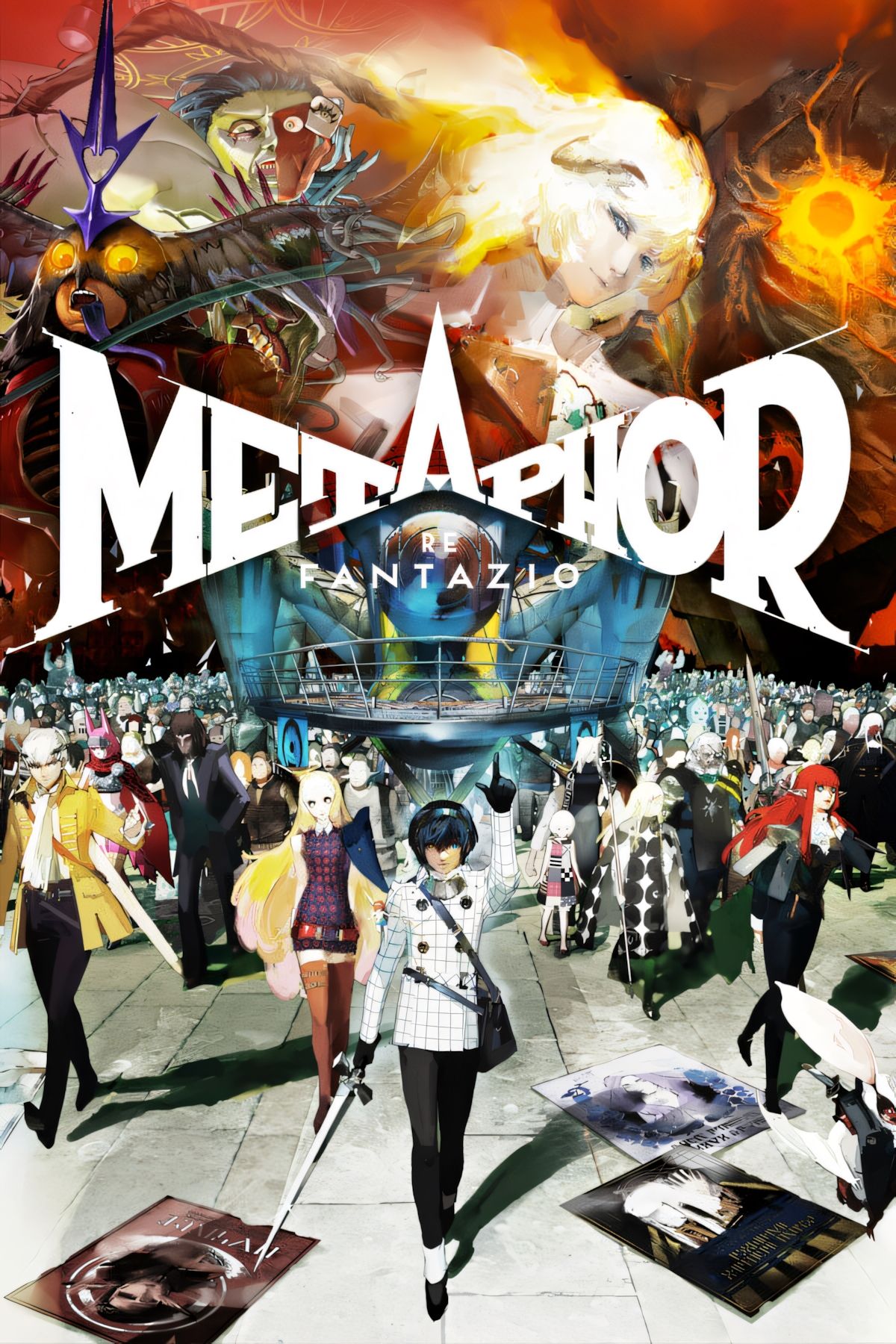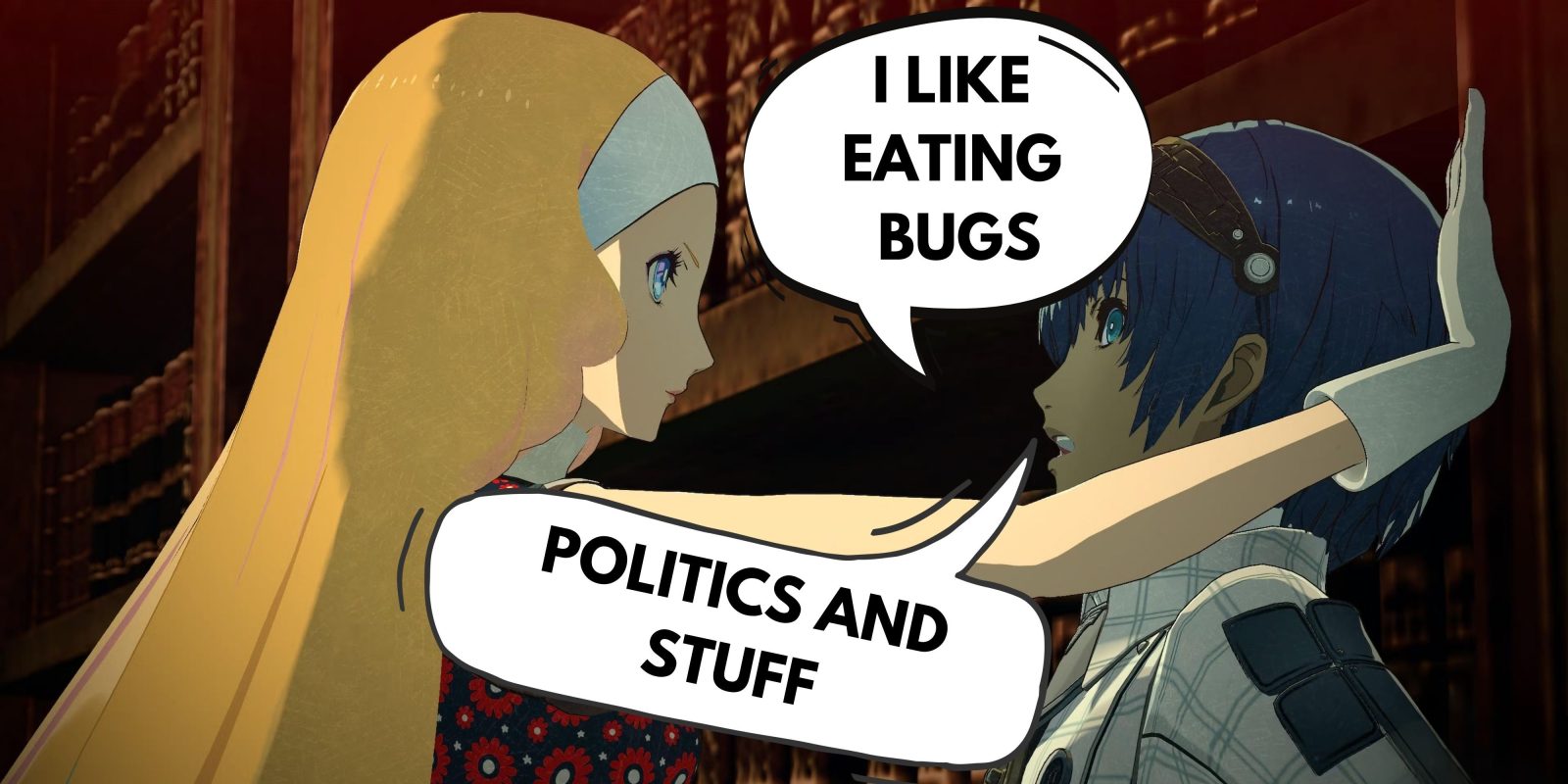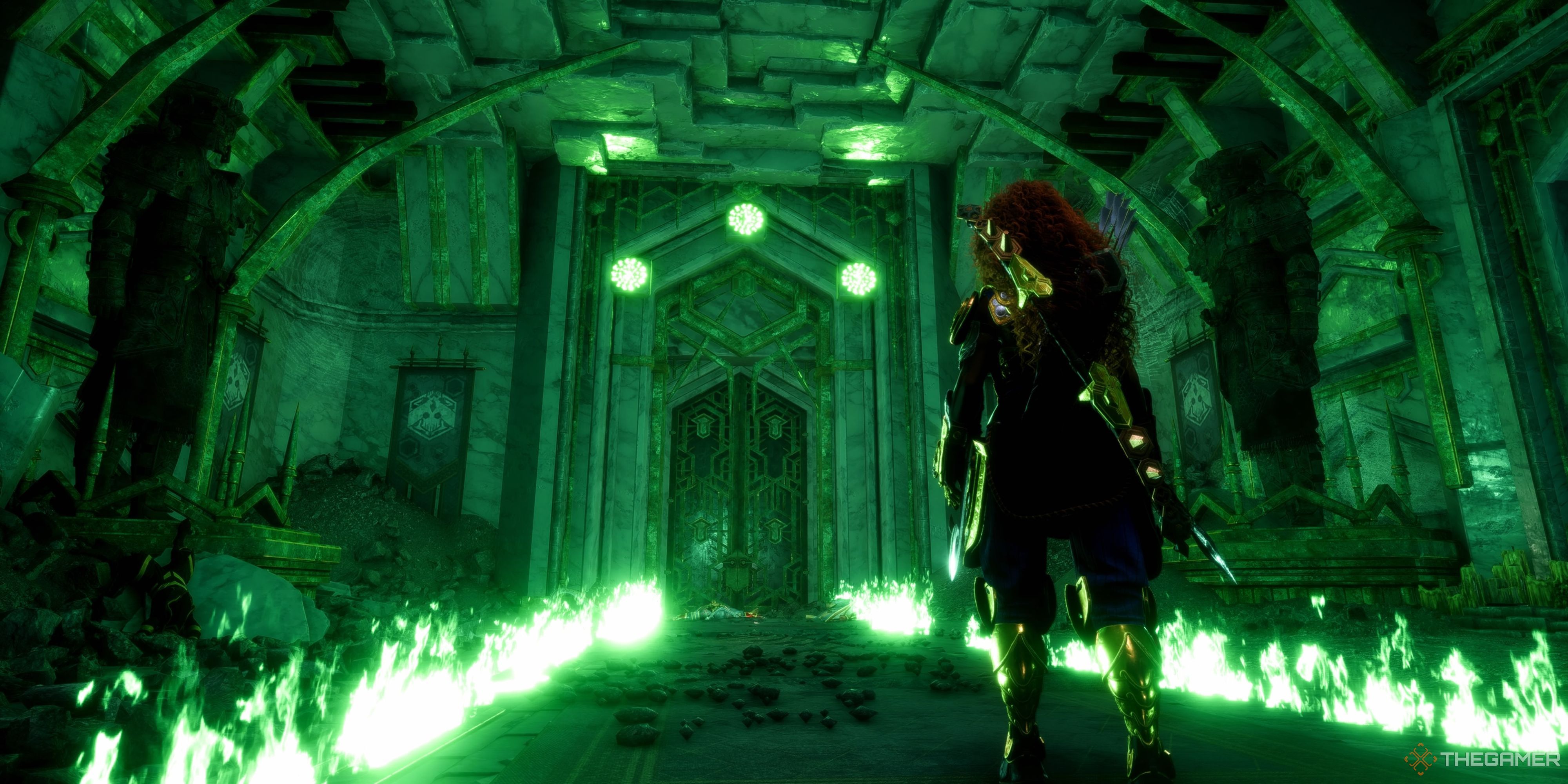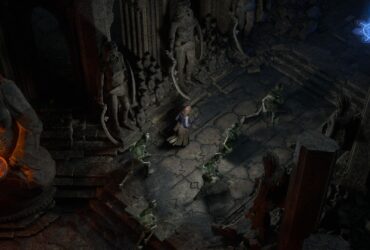Playing Metaphor: ReFantazio right after Dragon Age: The Veilguard has sharply highlighted the differences between the two games. More striking is how these differences are born from similarities. Both are party based RPGs trying to modernise their approach while offering complex worldbuilding, but only Metaphor manages to fully commit. And with that, it often makes you feel like you’re role-playing even when you’re not.
Wandering through city environments in Metaphor can feel a little like playing Dragon Age: Origins. There is a griminess to the world, a texture developed by background chatter and grounded racism. As an Elda, you are looked down upon by those around you. Tribes are clearly divided into ‘lesser’ groups. There is a sharpness to your surroundings, it is willing to make you uncomfortable. Something Dragon Age: The Veilguard, conversely, is afraid of.
The Veilguard Doesn’t Offer A Person Beneath The Choices
The Veilguard has received a lot of criticism for its lack of roleplaying, and most of that is deserved. Outside of choosing whether your character is trans, nothing in the game has much nuance. The distrust and discrimination of various races, the political intrigue, the shades of grey (all fantasy tropes Dragon Age once excelled at) have been erased in favour of providing a more comfortable experience.
Combined with the action combat, it feels like there is a lack of trust in the audience. As a Mass Effect fan I still enjoy this combat direction, but understand both why it is not for everyone and how it sums up the ‘broad appeal, no edges’ approach of the game that holds it back. BioWare’ssteadfast rejection of blood magic in the months leading up to development had me wary, and this diluted approach is best seen through the finished game’s depiction of Tevinter.
This comes to a head with the game’s dialogue. Though I don’t mind the wheel personally, I recognise that it’s a dated approach. Locking in specific personalities to each question gets worse when the all options are just the same response with a different tone, and the mean tone can’t even commit to being mean. Though you will make a couple of actual choices (which city to save, punching the First Warden), the inherent decision-making of the game is undercut by the dialogue wheel’s failure to live up to its end of the bargain.
It’s Metaphor’s dialogue that I’m more interested in for this point. It changes almost nothing in the game. In fact, there are some important conversations where picking the wrong option results in Gallica interrupting you to divert you back to the correct response. The only time it seems to matter at all is when you’re passing time on an activity to raise your virtues or bond, and there is a ‘better’ answer with more rewards.
Metaphor is a roleplaying game because it has a deep class system you can continue to customise throughout the adventure, concocting the best party lineup for each situation. There is easily enough depth here for it to qualify, especially when you also add in the assortment of equipment. But you aren’t playing much of a role at all. The die has been cast. You will go through this linear story and very little that you do will change anything. And yet, through the dialogue, it feels as if you have greater control than you do.
Nothing actually changes whether you decide your character enjoys the weird delicacies as Hulkenberg does, or is made as queasy as Strohl by them. I chose to tell Louis’ lackies that the reason I was helping them was because I was in love with Junah, but aside from a “ha, you and me both brother,” the conversation continued as planned.
A Character Is More Than Their Decisions
But these things are important nonetheless. Giving your character a personality is the best way to feel connected to them. In the reality of the game, my character is a foodie who appreciates acquired tastes thanks to his position as an Elda helping him appreciate cultures that are looked down on. That’s my own little canon. As for Junah, I’ve decided that it’s partially true (she does whisper sweetly in his ear the scene before, after all), but I’m disguising the real truth (that I’m saving the prince) with an off-hand non-answer.
I could have spat my food back out, told Louis’ gang I didn’t have to answer to the likes of them, stonewalled any attempt at communication Junah made with me. None of that would change what actually happened to my character. But it would have made me feel differently about the journey, and about my character himself. In the end, how it makes me feel is basically the whole point of playing a video game.
Dialogue in Dragon Age technically matters more. You make binary choices, change your approval rating, unlock new outfits. But it rarely feels as meaningful because the choices in Metaphor seem to shape your character more. They’re not a stock character in different shades of nice. Feeling like your choices matter is often more effective than them actually mattering – I hope more RPGs learn from this in the future.

From the creative minds behind Persona 3, 4, and 5 comes Metaphor: ReFantazio, a unique fantasy world, where your protagonist will journey alongside his fairy companion, Gallica, to lift the curse from the kingdom’s lost prince.
Control your destiny, face your fears, and awaken magical Archetype powers that lie dormant in your heart. By awakening to an Archetype, you will unlock the power to channel and combine the abilities of unique job classes. Strengthen your bonds and build your party to take down powerful foes and discover the kingdom’s true nature.

- Top Critic Rating:93/100
- Released
- October 11, 2024
- Developer(s)
- Studio Zero
Source link















Leave a Reply